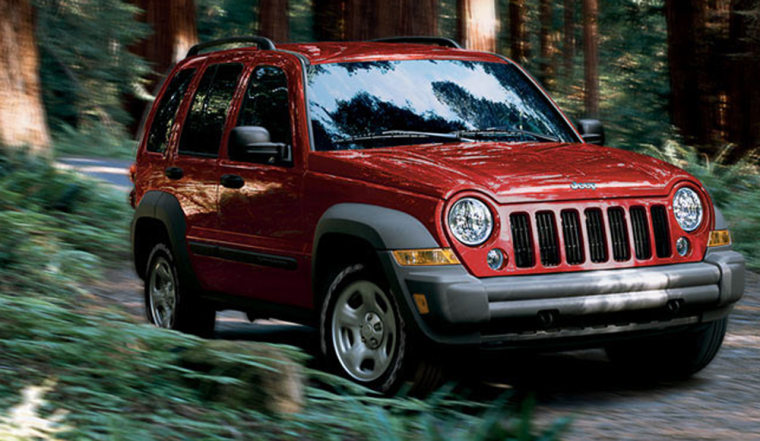Under the hood, Europe and America take different roads. Half of Europe’s 15 million new car sales a year are for models with diesel engines. In the U.S., manufacturers sell fewer than 50,000 diesel cars a year.
Once again, diesels have a chance — but only a chance — at gaining ground in America. Rising fuel prices work in their favor, as does the advent of cleaner diesel fuel in the U.S., which will help open the door for the importation of Europe’s high-technology diesel engines.
The problem is that while cleaner diesel fuel is coming to market here, federal emission standards are climbing, too. The Europeans say that their new technology diesels will be able to meet our tougher rules, but not for a few years.
In Europe, diesels have a double-barreled advantage. First, they get better mileage, 25 percent to 30 percent better than gasoline-powered vehicles. Measured by the U.S. Environmental Protection Agency standard, the Volkswagen diesel Jetta (stick shift) gets 36 miles per gallon in the city and 41 on the highway, versus 22/30 city/highway for the 2.5-liter five-cylinder gasoline model.
Second, European governments do not tax diesel fuel as much as gasoline. The difference in taxation may run as much as $2 per gallon. In the U.S., diesel does not have a price advantage. A colleague recently paid $2.71 per gallon for regular gasoline in Detroit, while diesel was going for $3.
Diesel motors have other pros and cons. The diesel engine is stronger and heavier than a gasoline engine because it must stand much greater pressure. An automotive diesel engine often lasts for several hundred thousand miles. Then again, today’s gasoline engines are quite durable, too.
Diesels cost more to build, but European manufacturers hold down the prices of diesel cars to boost sales. A VW Jetta diesel sold in the U.S. lists for $1,315 more than the comparable gasoline model, while a Mercedes E320 CDI is $1,000 more expensive. Then there is the smell, the noise, the nitrous oxide and particulate emissions, and the slow winter warm-up of diesels, but the new technologies are supposed to have minimized these drawbacks.
General Motors, Ford Motor and Chrysler use diesels only on their biggest pickups. They do not make them for their cars or other trucks, and they are not eager to spend billions retooling engine factories. The Japanese have not embraced diesels, either, but they have made a big bet on fuel-saving hybrids.
Under U.S. government orders, the oil companies have begun this month to produce low-sulfur diesel fuel. By mid-October, such fuel should be available at stations everywhere. Under normal circumstances, that should help the diesel market, but tighter emissions standards, which go into effect this fall and get progressively tighter over the next three years, will make it harder to sell diesels in this country.
All these developments have put the diesel engine in flux in the U.S. Chrysler will drop the diesel version of the Jeep Liberty this fall because the four-cylinder won’t meet the new emission standards. But it will offer a diesel Grand Cherokee, using a Mercedes V-6, starting next spring.
Mercedes currently imports the E320 CDI (common rail direct injection) inline 6 diesel; last year it sold 4,000 units here. It will replace that model in the fall with the E320 Blutec V-6 diesel, which will meet the 2007 regulations but not future ones. Mercedes has a system to meet the future rules, but it uses a urea injection system to eliminate pollutants, and the U.S. EPA hasn’t approved it yet.
Last year Volkswagen sold 17,000 diesels in America. The company currently sells the Jetta and New Beetle diesels in 45 states, but there will be no New Beetle diesels in the '07 model year. VW will sell Jettas badged as '06s next year. The VW Touareg sport utility diesel V-10 model currently sells in 50 states, but that will drop to 45 for the '07 model year. Then, sometime in calendar 2008, VW expects to roll out its new technology diesels in the U.S.
A new entry: Honda Motor, which is breaking ranks with the other Japanese, says that in three years it will offer a new, low-emissions four-cylinder passenger car diesel engine in the U.S. At the same time, Honda is covering all angles by announcing it will have an all-new, unique hybrid car, meaning something like Toyota's Prius, and will be looking for 100,000 sales a year.
While the Europeans and Honda are committed to diesels, other auto companies are showing little interest at present. Another complication: VW claims that its new turbocharger/supercharger combination on small displacement gasoline motors gives near-diesel economy without the cost and pollution problems.
Today companies cannot sell new diesel passenger cars in California, New York, Maine, Massachusetts and Vermont, which all have tighter rules than the national government does. (VW currently sells the Touareg diesel in California, but that vehicle is an SUV.) Diesel sales in the U.S. will slow after this fall when companies pull many of them off the market. If the Europeans and Honda can meet coming emission standards, then sales will grow again in two or three years.
Passenger car diesels are unlikely to grab a significant part of the U.S. market without some special price break for the fuel and breakthroughs in emission controls and manufacturing costs. Diesels also face an uphill battle against hybrids and other technologies, such as VW’s new peppy little motor.
